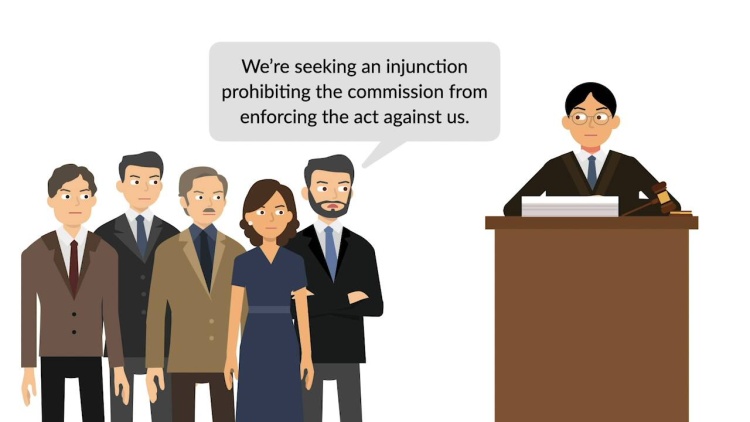United Public Workers v. Mitchell
United States Supreme Court
330 U.S. 75, 67 S.C.t 556, 91 L.Ed. 754 (1947)
- Written by Mary Pfotenhauer, JD
Facts
The Hatch Act made it unlawful for federal executive-branch officers and employees to take "any active part in political management or political campaigns." The penalty for a violation of this provision of the Hatch Act was dismissal from employment. George Poole and other federal employees, including members of the federal executive civil service and the United Public Workers of America labor union (plaintiffs), brought an action in federal district court against members of the United States Civil Service Commission (defendants). The plaintiffs sought equitable relief including a declaratory judgment that the Hatch Act's prohibition on active involvement in political management or campaigns was unconstitutional. Of the plaintiffs, only Poole had violated the Hatch Act at the time of the action. Poole was a local committeeman in a political party and worked at the polls on Election Day; there was a proposed order for Poole's removal from his position at the U.S. Mint based on his Hatch Act violation. None of the other plaintiffs had violated the Hatch Act at the time of the action, but they claimed that they wished to do so by, for example, serving as local party officials or writing articles in support of political candidates. The defendants moved to dismiss the plaintiffs' action for lack of a justiciable case or controversy, but a three-judge panel of the district court found that the plaintiffs' interest in engaging in political activities was sufficient to allow them to maintain the action. However, the panel found that the challenged portion of the Hatch Act was constitutional and dismissed the plaintiffs' complaint. The plaintiffs appealed directly to the United States Supreme Court.
Rule of Law
Issue
Holding and Reasoning (Reed, J.)
Dissent (Douglas, J.)
Dissent (Black, J.)
What to do next…
Here's why 905,000 law students have relied on our case briefs:
- Written by law professors and practitioners, not other law students. 47,100 briefs, keyed to 995 casebooks. Top-notch customer support.
- The right amount of information, includes the facts, issues, rule of law, holding and reasoning, and any concurrences and dissents.
- Access in your classes, works on your mobile and tablet. Massive library of related video lessons and high quality multiple-choice questions.
- Easy to use, uniform format for every case brief. Written in plain English, not in legalese. Our briefs summarize and simplify; they don’t just repeat the court’s language.






